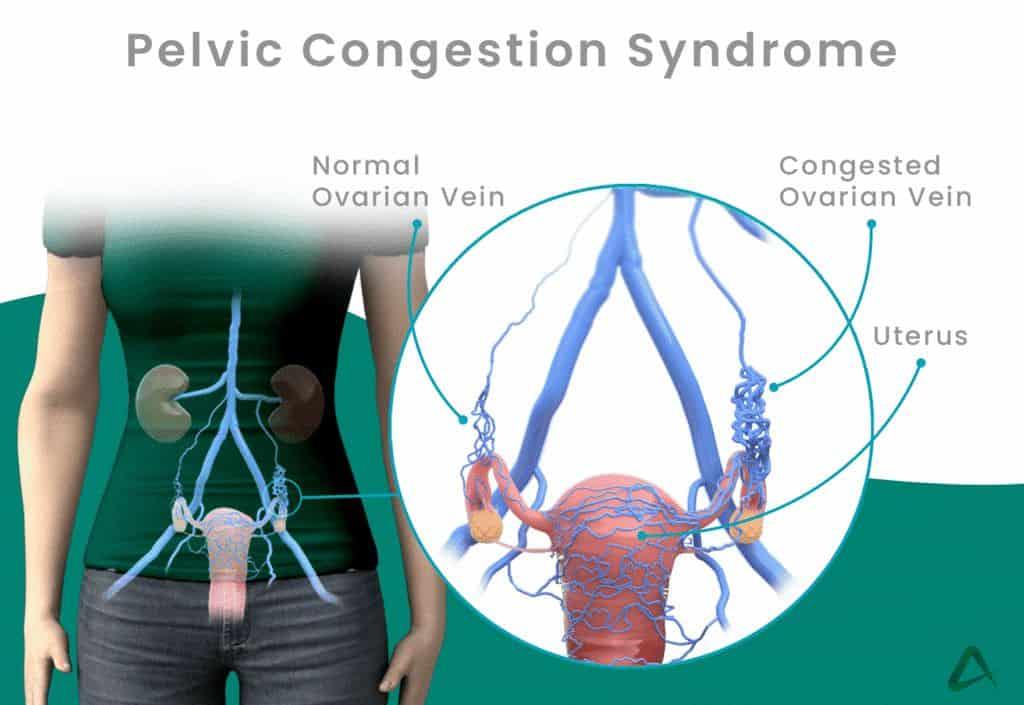Pelvic Congestion Syndrome (PCS) is a condition where enlarged veins in the pelvic region cause chronic pain and discomfort. Women in Santa Fe experiencing Pelvic Congestion Syndrome often report dull, aching pain that worsens after standing, sexual activity, or during menstruation. While PCS can significantly impact daily life, effective treatment options are available.
Understanding the choices for treatment is key to managing PCS successfully. With specialized care for Pelvic Congestion Syndrome Santa Fe women can explore lifestyle changes, medications, and minimally invasive procedures that ease symptoms and improve quality of life.
Medical Diagnosis and Evaluation
Before treatment begins, proper diagnosis is essential. PCS can often be mistaken for other causes of pelvic pain, so accurate imaging tests such as ultrasound, CT scans, or MRI are critical. These tools help doctors identify enlarged pelvic veins and confirm the condition.
In Santa Fe, women can find specialists who focus on vascular and gynecological health. With the right evaluation, a tailored treatment plan can be created to target the root cause of pelvic discomfort.
Conservative Management Approaches
For women with mild PCS symptoms, conservative management may be the first step. Pain relief medications, hormone therapy, and anti-inflammatory drugs are commonly used to control discomfort and reduce vein pressure.
Lifestyle adjustments, including regular exercise, weight management, and avoiding long periods of standing, also play an important role. These changes can improve circulation and lessen pain over time.
Minimally Invasive Procedures
One of the most effective treatments for PCS is embolization, a minimally invasive procedure. During this process, a catheter is used to block problematic veins, redirecting blood flow and relieving pressure. Embolization has a high success rate and usually allows for a quick recovery.
In Santa Fe, many women prefer embolization because it avoids major surgery and offers long-term relief. The procedure is typically done on an outpatient basis, allowing patients to return home the same day.
Surgical Treatment Options
In more severe cases where other treatments are not effective, surgical intervention may be recommended. Options include ligation, where veins are tied off, or removal of problematic veins. Surgery is less common today due to advances in minimally invasive techniques but remains an option for select cases.
Women in Santa Fe considering surgery should discuss risks, recovery time, and long-term effectiveness with their healthcare provider. A thorough understanding ensures an informed decision.
Emotional and Supportive Care
PCS not only causes physical discomfort but can also impact emotional well-being. Living with chronic pain often leads to frustration, anxiety, or isolation. Emotional support and counseling can play a vital role in coping with the condition.
Santa Fe offers community resources, support groups, and counseling services to help women manage the emotional aspects of PCS. Combining medical treatment with mental health care ensures a more holistic approach to recovery.
Choosing the Right Specialist in Santa Fe
Selecting a knowledgeable healthcare provider is crucial for successful PCS treatment. Specialists in vascular medicine, gynecology, or interventional radiology often have the expertise needed to manage the condition.
In Santa Fe, patients can access experienced providers who offer personalized care and modern treatment techniques. Scheduling a consultation is the first step toward finding relief from chronic pelvic pain.
Conclusion
Pelvic Congestion Syndrome can have a major impact on daily life, but effective treatment options are available in Santa Fe. From conservative management to minimally invasive embolization and, in rare cases, surgery, women can find relief tailored to their needs.
By working with skilled specialists and exploring all available options, women in Santa Fe can reduce symptoms, restore comfort, and improve their overall quality of life. Seeking timely care is the key to managing PCS effectively and regaining control over one’s health.

